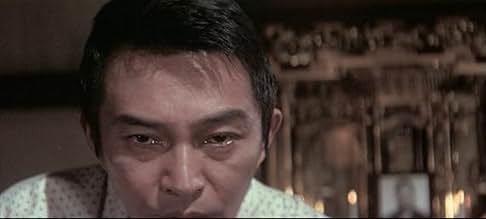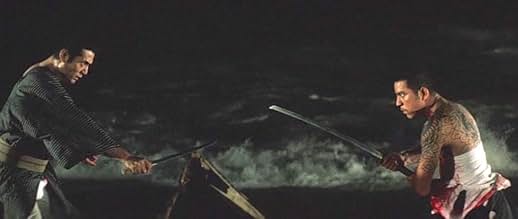Unlike many other films by Hideo Gosha this one sort of operates as a reverse action film. The first ten minutes are the most exciting and visually active and the climax, despite the brutality on screen, is almost leisurely. Was that the intent? It's hard for me to say.
The film follows the lives of several gangsters after they have been suddenly pardoned by the new Japanese government in the late 1920's. Jailed after a fatal inter-gang fight the ex-cons attempt to return to their old gangs but find everything has changed. Things don't go easy and the inevitable final conflict is set in motion.
Dense with plot and gangster etiquette, this is not an easy film to jump into. Gosha's earlier samurai films are more accessible. The plot revolves around Tatsuya Nakadai's withdrawn and moody gangster but it takes detours with some of the other characters which can be confusing. The photography is dark and saturated with color. It's hard to see clearly what's happening at times but that seems to have been intentional. The fights are very realistic with nearly everyone killing each other with short knives. Not the clear stylized slashes of a samurai sword where the victim just falls over dead, these are brutal horrible deaths. The excellent music is very influenced by Morricone's western themes unfortunately including the incessant repetition of the same theme over and over (something that Morricone really didn't have control over). The pacing is slow, sometimes pretentious. At two hours it can be an effort.
I saw this in the late seventies at it's New York premier and just again recently. I feel the same way about it still. You may like it but be prepared for the slow pace after the quick start.






















